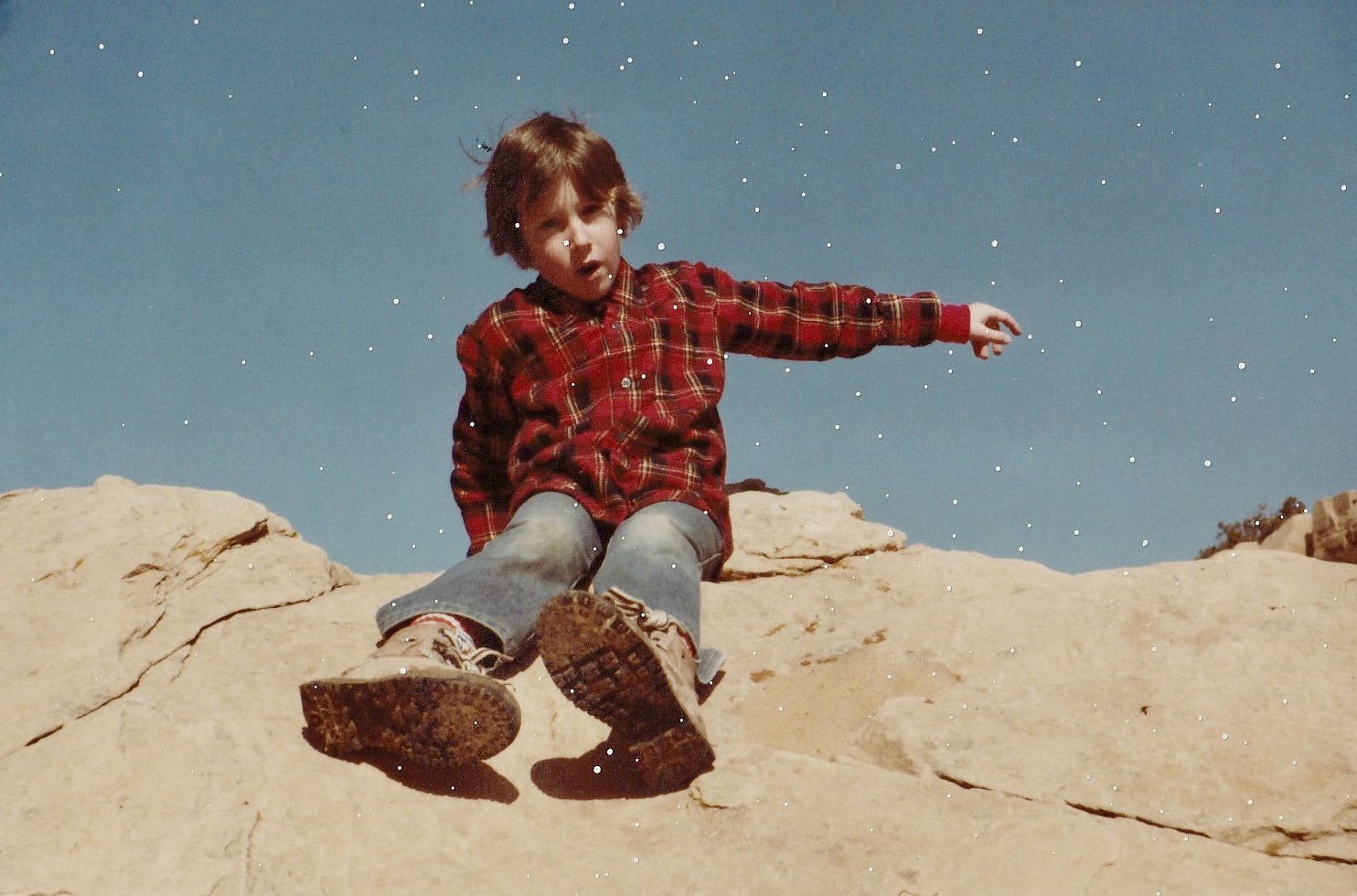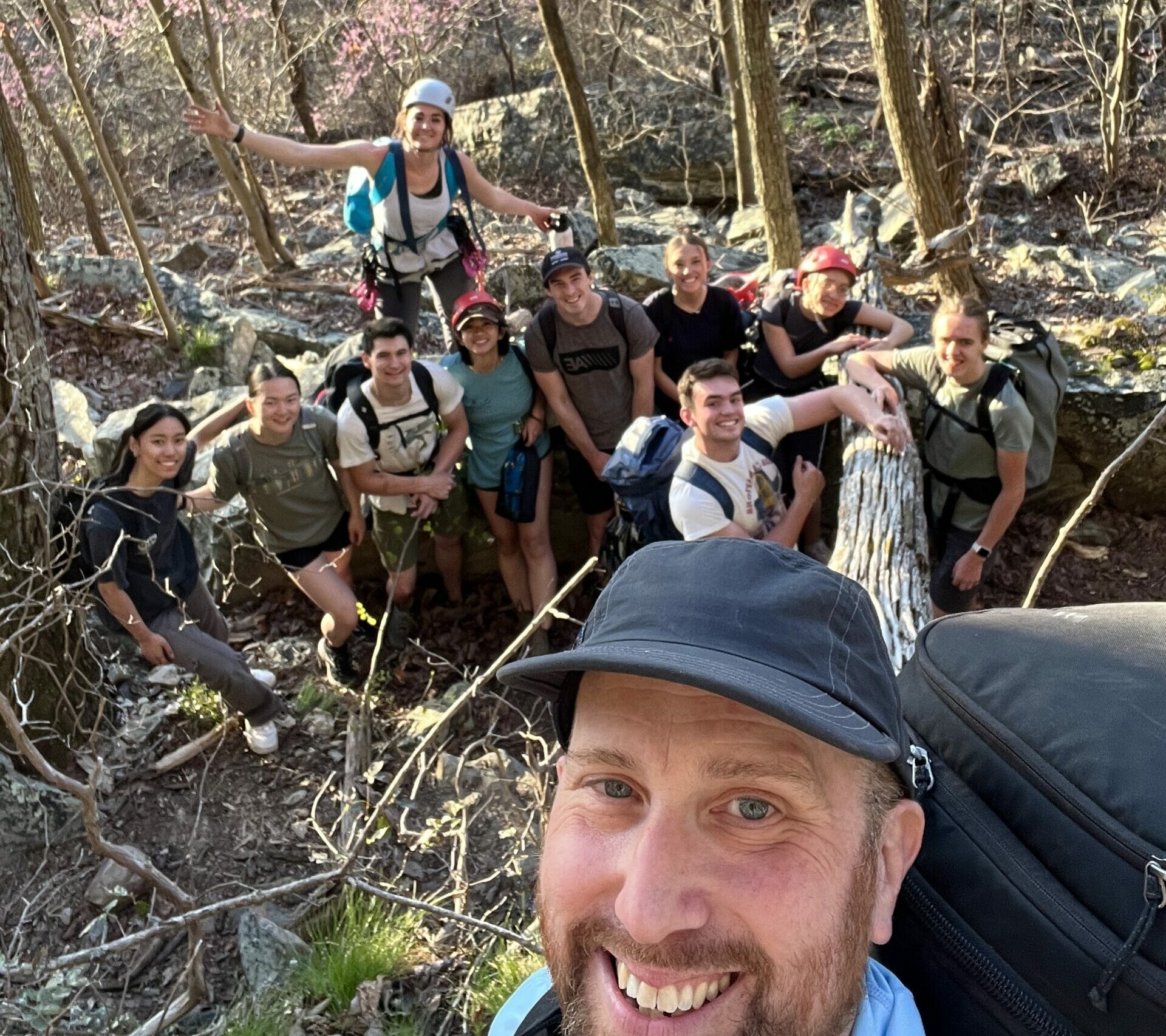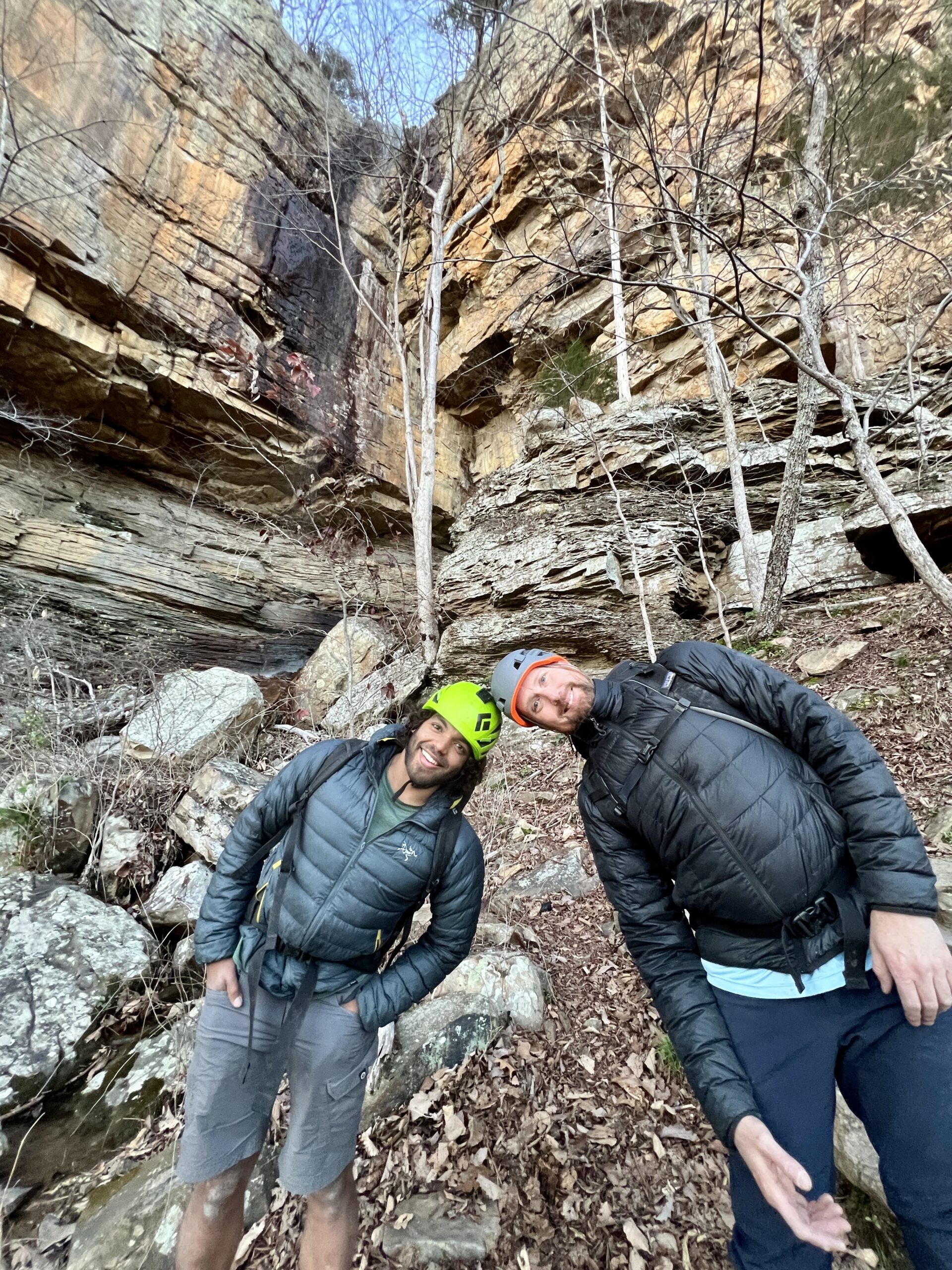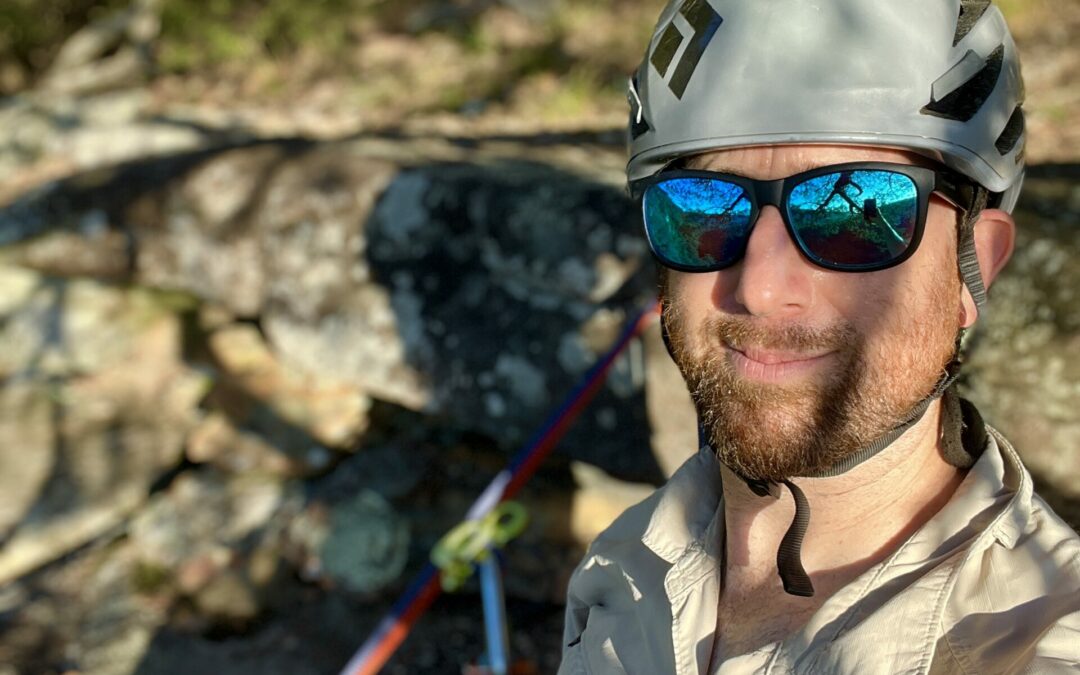“Stewardship means both having access to the areas we climb and sharing responsibility for taking care of them. It’s easy for new climbers to think, ‘Oh, it’s great these places are here to climb.’ But it often takes time to realize that these are some of the only accessible climbing areas we have—and if we don’t work together, we could lose that access. Plus, there are so many incredible places where climbing is still restricted.”
Hundreds of feet in the air, you might spot Max Gunther placing gear on a sweet new multi-pitch line. Max is a longtime climber and SCC member based out of Nashville, Tennessee. As with many community members, Max’s relationship with climbing comes from more than just a casual commitment.
“Growing up, I always wanted to be a mountaineer. In high school, I met a guy in my driver’s ed class who was into climbing, and we went out a few times. It piqued my interest, mostly because I loved being outside in the mountains. We usually climbed at Tallulah Gorge, which was a pretty amazing place to start. Although I grew up in New Mexico, where we’d scramble around the mountains without ropes, and I was lucky to have made it out of some of those situations safely.

“It wasn’t until college at Emory University’s Oxford campus that I went out with another friend, a former guide from North Carolina. He knew exactly what he was doing, and when he took me up my first multi-pitch trad route, I was completely hooked. It was a powerful moment because I’d just lost my dad a few weeks earlier to suicide—there had been no warning. I was only 19, a sophomore in college, and coping as best as I could. But that day, going way up on the rock, was the first time I’d felt a real sense of peace in the weeks since my dad had passed.
“That experience blew my mind and changed how I looked at climbing forever. From then on, all I wanted was to get that feeling back, to climb high with nothing but the exposure and the birds flying below me. It’s an indescribable feeling—being way, way up there.”
It’s no surprise, then, that Max got involved with the SCC once he arrived in the Southeast. Our organization works in large part due to our incredible network of volunteers. Max was quick to
see the need for this assistance and now works as part of our Education Committee, which seeks to inform climbers on best practices for preserving climbing areas and the land around them.
“I first became truly invested in the Southeastern Climbing Coalition when I realized that no one was officially ‘in charge’ of these climbing areas. The SCC was really just three dedicated people, working alongside volunteers like myself, and they were the whole reason we had access to these rocks. As I learned more about local climbing organizations, I began to understand that it was a grassroots effort. Without the commitment of volunteers, we simply wouldn’t have access.
“There’s a stereotype that climbers are careless with the land, but in reality, it’s the opposite. We’re the ones keeping these places clean, picking up trash, and protecting the environment. It hit me that if we didn’t each take responsibility no one would.”

We can all think of that special place that climbing has brought us, but for Max, it all comes back to trad climbing.
“Sunset Park and the Tennessee Wall are especially close to my heart because that’s where I truly learned to trad climb. Both places have faced access issues over the years, and it would break my heart if we ever lost the ability to climb there. They’re such gifts.”
So how can you help? The answer is simple: time and money. SCC memberships are only 35 dollars a year, and they help keep us operational and able to preserve the lands that are so special to us. It’s a small price to pay for something that has brought so many of us so much joy.
“To me, it’s a simple request: take the number of days you climb outside and divide it by the cost of a $35 annual membership. You’re literally just paying a few dollars a day to support a charity that makes climbing in these places possible. Once I explain it like that, the math usually clicks, and people are quick to join.”
In addition, we can always use the help of volunteers in the form of outdoor trail days, which allow us to directly impact the areas we love.
“I think trail days are really important because you get to see firsthand that none of this shit gets done unless we do it. The bolts don’t get put in. The steps to the trails aren’t made. The access is not given. Full stop!”
And as for Max, the community we’ve built is also something that’s kept him coming back for years to come.
“I just like being outdoors and like rock climbers as a group. Y’all are awesome!”
Written by Paul Zachos

